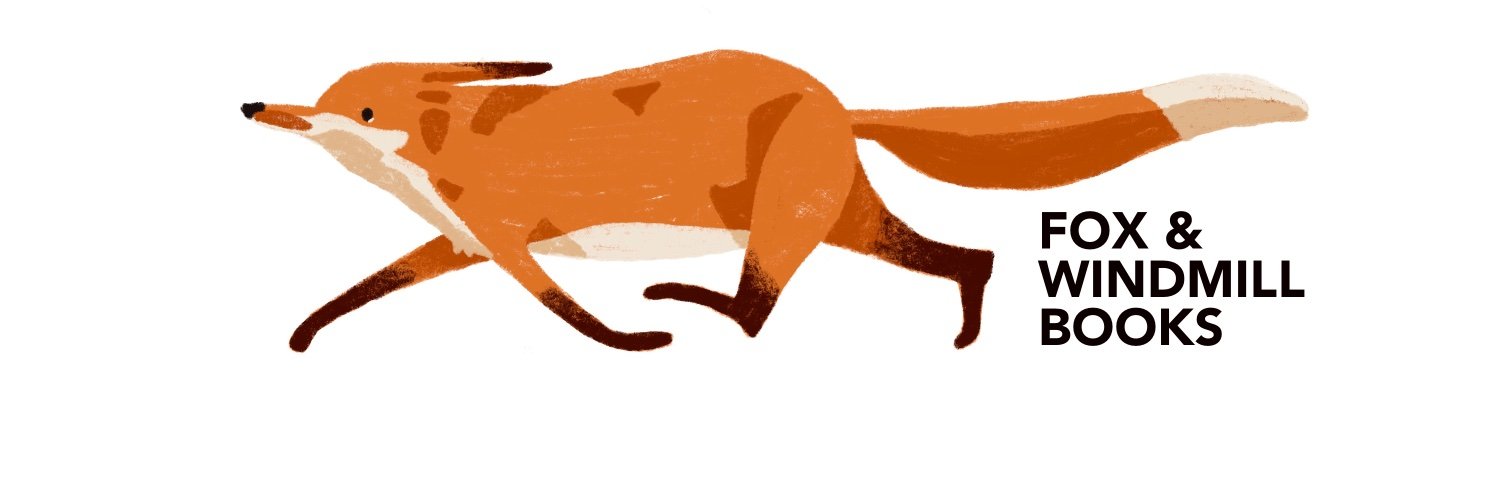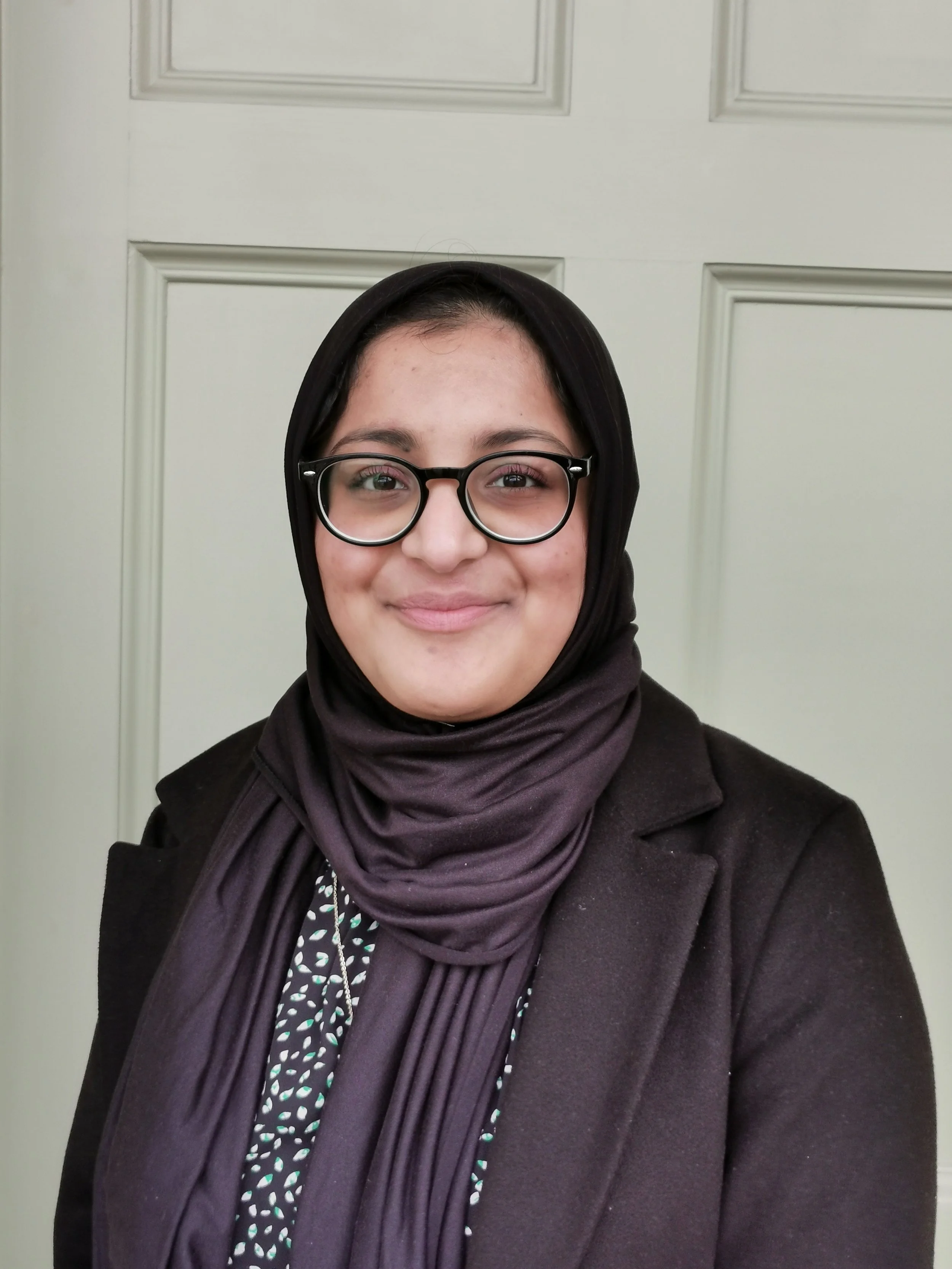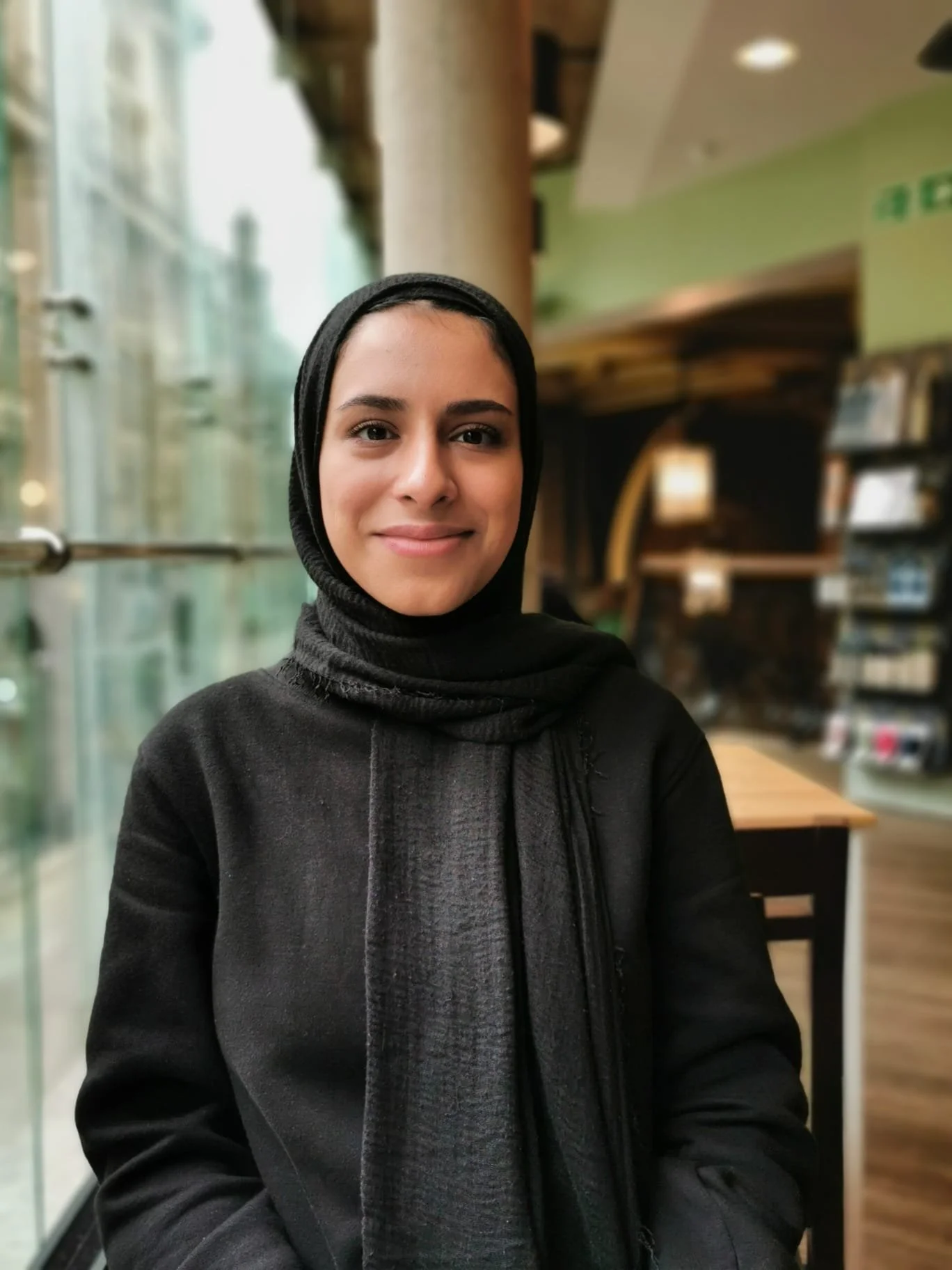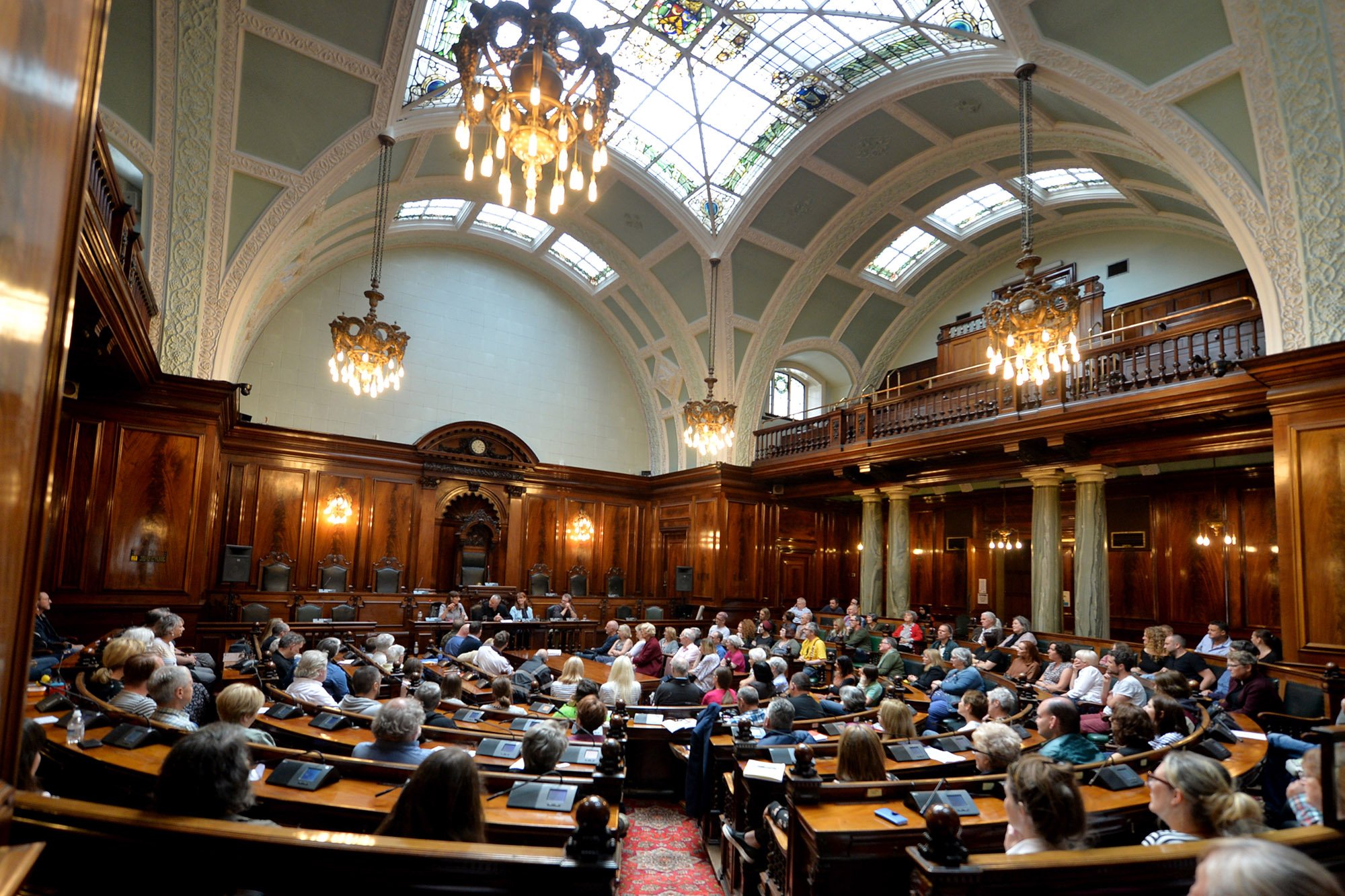Meet the female founders of the UK's first publishing company for south Asian writers
The Fox and Windmill is the UK’s first publishing company for British south Asian writers and was founded just last year by female founders Habiba Desai and Sara Razzaq. We sat down with these down-to-earth, funny and inspiring women to find out what makes them tick, their publishing company and their first book.
BAWM: So to begin with, why did you create Fox and Windmill?
Sara: Well, we started Fox and Windmill because me and Habiba, both noticed a lack of diversity for South Asian writers and actually accurately represented literature. So we were both very avid readers of fantasy fiction and sci fi and we just felt that there was a gap there. And we thought, Fox and Windmill would be the perfect platform to kind of bridge that gap.
Habiba: We also started it because publishing is so London centric so it's really difficult for people to go over there financially and having that support system is very hard. So we wanted to set something up where we live, which is in Bradford. In the north, we've got so many literature connections here, like David Hockney, Brontê and JB Priestley. In the end, it was a way for us to kind of tap into that as well and showcase stuff that Bradford represents.
BAWM: So I've seen on the website, why you've called it Fox and Windmill. But for our readers, would you like to explain the name?
Habiba: Kevin Duffy, who is our mentor runs a award winning publishing company and we were really stuck for names. We were thinking, should we go with something very ethnic, because my background is Indian, Sara’s is Pakistani, and we'd like to tie into like that. But then nothing felt like it fit or nothing felt like it really represented us so Kevin said, think about it'll come to you.
And I went for a walk in Haworth, next to Bronte parsonage, and I was with my sister, and we saw a fox on a weather vane. And I forgot what the name for weather vane was so I called Sara. And I was like there’s a fox on a windmill here. And I just so happened to take a picture as well, just to show her and we found that in one of our galleries, ages ago, and then put it up on our website, because we were like, that's what we should call it.
So what has been the response so far to your publishing company?
Sara: It's overwhelming, I think, to both of us. Since launching, it's been a year and a bit now, and we've just had so much support from everyone, especially our mentor and the indie community as well like, independent book shops and independent publishing companies, on social media, we’re always getting such amazing messages from people saying that they're so excited for us. And it really defines what we're doing as well because they see it's so needed and so necessary.
Habiba: Not a lot of South Asian writers know much about publishing, they don't know how to break into that scene, So for us, it was to create something that was really accessible. And we just tell people, if there's anything you need, let us know. It's why we have our podcast. And we have so many other ways for people to get in touch with us, and ways that we can share industry secrets. So we can get people into that industry a bit more we go to schools and festivals and events. Schools has been a huge response as well, which was unusual, because they're quite closed off but especially local schools, because they would like to show young South Asian girls from our local communities doing something. In our first nine months, we were also nominated for start up of the year by the Bookseller awards. So it was like a huge response; London was interested in what we were doing.
Habiba Desai
BAWM: So who inspires you?
Sara: When we were starting up, and it's been a conversation over five years, where we've been talking about our love for reading and wanting to get into the publishing field, we say all the time, we wouldn't have started if it wasn't for the push that our mentor Kevin Duffy gave us. So watching him build what he's built over the past 15 years, his journey is such an inspiration to us both and it and it kind of makes you think, if he can do it, then we can too. And also, whenever we go to these events and festivals and we hear people from the industry, we always leave feeling like we've learned so much and we feel so inspired and motivated to do things and to kind of expand our knowledge as well.
Habiba: I'd say, I think our writers inspire us as well because they come so passionately with their stories. And for them it's an opportunity but they're also quite nervous about it. And when they have that courage to submit their stories to us, especially something that's really personal, that you've spent years working on is really hard to do, and really hard to let go because you're facing criticism and you're facing the judgement of other people that you've never met before. And I think when every single day when they submit something to us, we sit down and read it together, I think that gives us a kick of inspiration. A lot of these writers they're single moms or parents running around and then the time that they take to put in love and attention in the story means we get really excited when it comes through. So we always ask them what's the inspiration behind your work because it kind of gives that deeper connection with the book that they've made. They inspire us every day, because without them, we wouldn't have anything to publish.
First and foremost, Sara and I are writers as well. So Sara is an academic writer. I think my first experience in submitting work was through the Penguin Write Now scheme. So it was sending work to somebody else and getting an agent to read it and getting rejected and having that process. So we've tried to see in one viewpoint and try to make that the way we focus the way we send stuff back to people. For example, if we want to reject a piece of work, which is such a difficult thing to do we try to do with the utmost care and we always give support packs. And if you need anything else, if you want to look at an editor, or, if you want to do some of the stuff like workshops and classes and stuff, we give that resource pack to them, so we don't just say no.
Sara Razzaq
BAWM: So how do you pick your authors, then?
Sara: The anthology, Into the Wild, is our first publication and we opened it as a writing competition. So we just wanted to pick six short stories and six poems for that. And we received, I think, over seventy submissions. And then me and Habiba got together, printed everything out and created a long list. So we read through it together. And I think the best part about it is me and her have similar tastes, and so when we read something, and we just look at each other, we're like, ‘okay, this is special.’ Then we left it to the judges for the shortlist.
But right now we were looking for a manuscript to publish. We are looking for YA and adult fiction, and for fantasy and sci fi, because that's where we feel that there is the gap. But we're also really interested in the inspiration behind the story and the writer’s journey. So in terms of the submissions, we ask for the first three chapters and a one page synopsis of the entire story so we can get a brief overview and then we kind of determine whether we want to see the full manuscript. So it's quite a journey and we're kind of learning as we go, but I think me and Habiba have found a rhythm with it in terms of what we're looking for and key things that we're really keen on finding.
Habiba: There's the second very real instinct because you're reading it as someone who's going to enjoy that book and you're also reading as a publisher. ‘How well is this going to do and is it something that you can see being created?’ I think there's something to do with like that instinct you get like what makes a good book or you know, what makes it take you to a complete different place and and change your perspective on different stuff ?I think that's kind of really what inspires us. But then obviously, we do also get our books and send them to other readers like BETA readers, just to get their reactions as well.
Bradford City Hall
BAWM: So how did you two meet?
Habiba: We met at the Bradford Literature Festival in 2016 and it was really our love for reading that brought us together. We were reading books in the office when we're supposed to be doing work. I sometimes say, she's just another version of myself.
Sara: When we were talking she mentioned that she'd written a book, a fantasy story. And I said to her, ‘please, could you send me it? Let me read it’. And she had not sent it to anybody but she said ‘you know what? Okay, I'll send you it.’ So for me, I just felt like, oh, wow, she's actually sending me her work because it's such a big thing for somebody to send you their work. And I read it and I absolutely loved it. I felt so inspired from reading her story and I just thought, this is the kind of stuff that I wish was there for me to read when I was reading young age. And I said to her, ‘you need to get it published and we were just talking about our love for publishing as well. And I remember we were at the festival, we got the festival brochure, and we were just circling everything we wanted to attend to do with publishing and trying to find out more about the industry. After we'd finished our shifts, we’d sit at City Park, and we used to talk at length about reading and writing and then we realised that we were at the same university together and we were doing similar courses. So we continued talking and we even attended so many workshops at the university as well to learn more about the industry and it's just been an amazing journey ever since.
BAWM: What can you tell me about this first publication Into the Wilds?
Sara: So it's our first publication and we'll be launching on the 24th of June at the Bradford Literature Festival. We're really excited to get it out there. We call it a pre launch to Fox and Windmill because we feel like we're giving a taster of what we're about. And we're so happy to be able to give a platform to 15 writers. It consists of six short stories and six poems. And then we've also got established writers in there as well. We kind of want the writers to be published alongside already established writers to give them that feeling of having a publication that's involving already successful writers, so they can be motivated as well. It also includes illustrations. Habiba did the initial sketches and then we had the amazing team at Carnegie Press who designed all the amazing illustrations.
Habiba: We've got an incredible introduction by Simon Mia and quotes from Nikesh Shukla, Ki Abdullah and Andrew McMillan, who is my mentor. We built all these contacts. I love talking to people, which is why my job is partnerships and trying to get as much people on board as we can. So when I was doing all these different things like working as a bookseller or at Penguin Random House for about a week, I was literally just building all these relationships with people and just building it because I liked what they were doing. And so we were able to share our first publication with a lot of people. And we were very lucky that they were really excited by it and they were sharing it on their platforms as well.
So our designer Ivan created like the cover for us. He three gave the initial sketches and this is a local landmark in North Yorkshire. I don't know if a lot of people know this, but the anthology competition was only opened up to writers in the north. Our publishing company was specifically for British South Asian writers in the north. But then there's all these questions, like, what is the North? Midlands do they get ignored? And so lots of people asked us, ‘can you please open up your competition to writers from right is everywhere in the UK?’ So we thought, okay, let's just open it up to everyone. And I think it was the best thing we ever did, because we had a lot more submissions come in. So we have six writers from the north in here, and the rest of them are all from around.
You can buy tickets to Bradford Literature Festival here and order Into the Wilds here.




